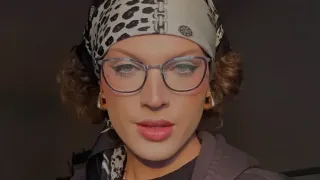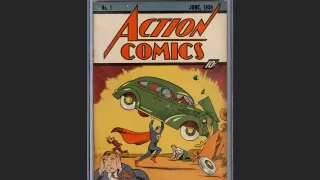July 5, 2020
LGBTQ Nightlife in NYC Faces a Long Road Ahead
Matthew Wexler READ TIME: 4 MIN.
EDGE spoke with LGBTQ bar owners, nightlife entrepreneurs and elected officials who are determined to weather a storm that doesn't appear to be passing any time soon. Our in-depth feature profiled case studies from across the country. Here's a look at how two New York City bar owners are hoping to survive.
HEY, HENRIETTA, COME OUT AND PLAY!
Lisa Cannistraci remembers 438 Hudson Street in 1985 when it housed the original Cubby Hole. Hired there as a bartender at 22 years old, she befriended Storme De Larverie, then 65, who was the bouncer and protected patrons from the gay bashings that were so prevalent at that time in New York City. In 1991, businesswoman Minnie Rivera approached Cannistraci and asked if she'd like to transform the Hudson Street watering hole into a lesbian bar.
Henrietta Hudson is now the longest-standing bar for queer women in the country. Bearing the tagline "Bar and Girl," it proudly hangs the transgender flag in its window and, pre-pandemic, offered a full calendar of events that ran the gamut from speed-dating to karaoke to fundraisers for LGBTQ rights. As far as bars go, it was a model of intersectionality, "a lesbian-centric, queer human bar" that supported women of color and gender-nonconforming folk who often felt excluded from other places. It's changed with the times and survived the economic downturns caused by 9/11, the 2008 recession and Hurricane Sandy. But can it survive a pandemic? Coronavirus shines a glaring light on the decline of lesbian spaces over the past several decades. The Addresses Project documents these losses in New York City through maps, recorded histories and portraiture.
Whatever else the venue offered – a safe space or the place to find a partner – Henrietta's is "the opposite of social distancing," says Cannistraci. Its tiny dance floor, pool table, intimate window seats, and sought-after bar, which offers point-blank proximity to go-go dancers and shot girl. Its appeal means it must wait until Phase Four of New York's reopening – date unknown. Cannistraci is hopeful that there might be a way to open the bar at 50 percent occupancy with 45-minute sessions during summer. But with coronoavirus cases rising in 40 out of 50 states, the reality for a full reopening is spring 2021. And for "every month the bar's closed, we need to raise $20,000," she says.
Henrietta Hudson's GoFundMe campaign has nearly reached its $40,000 goal, which buys a little time, and Cannistraci is deeply appreciative. "The outpouring of love and donations on the various platforms has been incredible. But we need continued support until we reopen." Meanwhile, she is in ongoing negotiations with the landlord. "I'm not going to lose the bar. I'm not going to let it happen. I can tell you; we will be reopening."
By Merryn Johns.
A PENNY FOR YOUR THOUGHTS, A 3 DOLLAR BILL FOR YOUR MEMORIES
Far from Hell's Kitchen's bustling sidewalks, across the East River and deep in the heart of Williamsburg, Brooklyn, 3 Dollar Bill emerged two years ago as a phoenix for New York City's dwindling dance club scene. (Ironically, its owner, Brenda Breathnach, had purchased long-time East Village gay bar Phoenix in 2011.) But 3 Dollar Bill is, as Dorothy's carriage driver says in "The Wizard of Oz," a horse of a different color.
The 55-year-old Irish immigrant saw potential in a former 19th-century brewery and spent two years transforming the 10,000-square-foot venue into something destined for the queer history books. She signed a 25-year lease, currently clocking in at a staggering $30,000 per month, and slowly began to build a clientele through partnerships with party promoters such as nightlife legend Susanne Bartsch and a new generation of revel-makers like Ty Sunderland.
3 Dollar Bill's momentum began to build, in part, because of its modern take on the gay club.
"We were definitely on the upswing when we closed," says booking manager Adam Topher. "It's crazy because it was such a struggle and took two years to build the place, now everyone's going through the same thing. People say that gay bars aren't doing as well, but there is still a need for these spaces. 3 Dollar Bill is a space for the entire LGBTQIAPK queer community and not just gay men."
Bars and restaurants are just a small cog in the wheel of New York City's four-phase reopening, outlined by Governor Andrew Cuomo. In the meantime, 3 Dollar Bill has brought on the Corona Queens for an Instagram takeover. Each week, the duo of drag queen Lucia Fuchsia and recording artist Benjy Bradshaw gather some of the city's hottest nightlife entertainers including Jackie Beat, Sherry Poppins, Luxx Noir London and others.
"We have to keep positive," says Breathnach. "There are a lot of young people dead, and they don't get a second chance. At least, if we take care of ourselves, we can get a second chance. You get up, and you're down, and you get upset and depressed, and you're watching fucking TV, and it's like 'for God's sake.' I'm normally not somebody that's like that. I was busy, going 90 miles per hour, six days a week."
Breathnach applied for federal relief funds and was granted a Paycheck Protection Program $50,000 loan, which she describes as "a drop in the ocean." The loan wasn't enough to cover one month's expenses and came with strings attached regarding its use that have yet to be untangled by federal lawmakers. Like other renters, Breathnach has negotiated her leases with building owners, a precarious tightrope for all parties trying to keep from falling into a financial abyss.
"We're going to do our best to hold on," says Breathnach. "I have no doubt that Phoenix and 3 Dollar Bill are going to be very strong again. It'll take us at least a year. Nothing is easy in New York City, but you have to keep trying."






